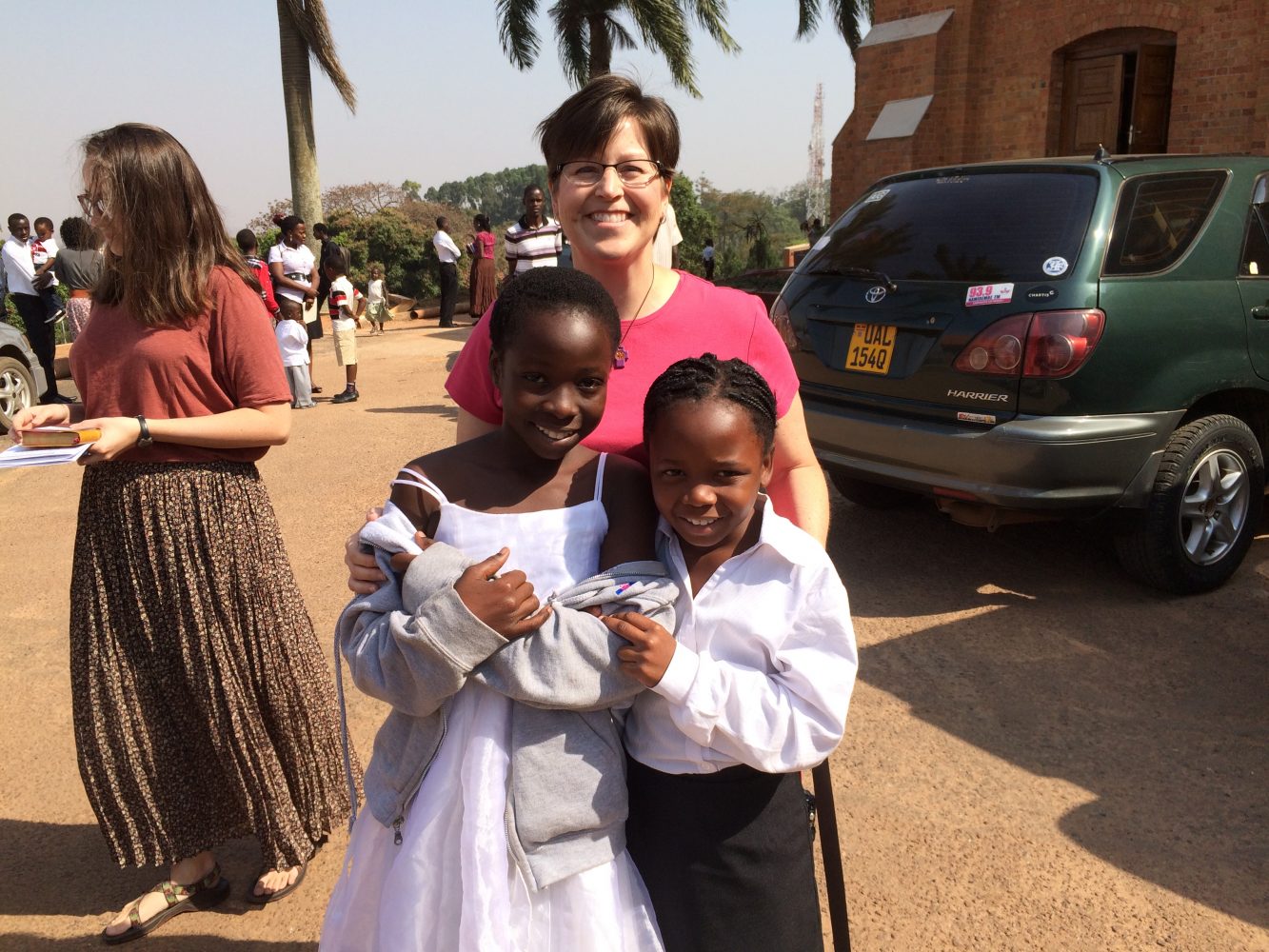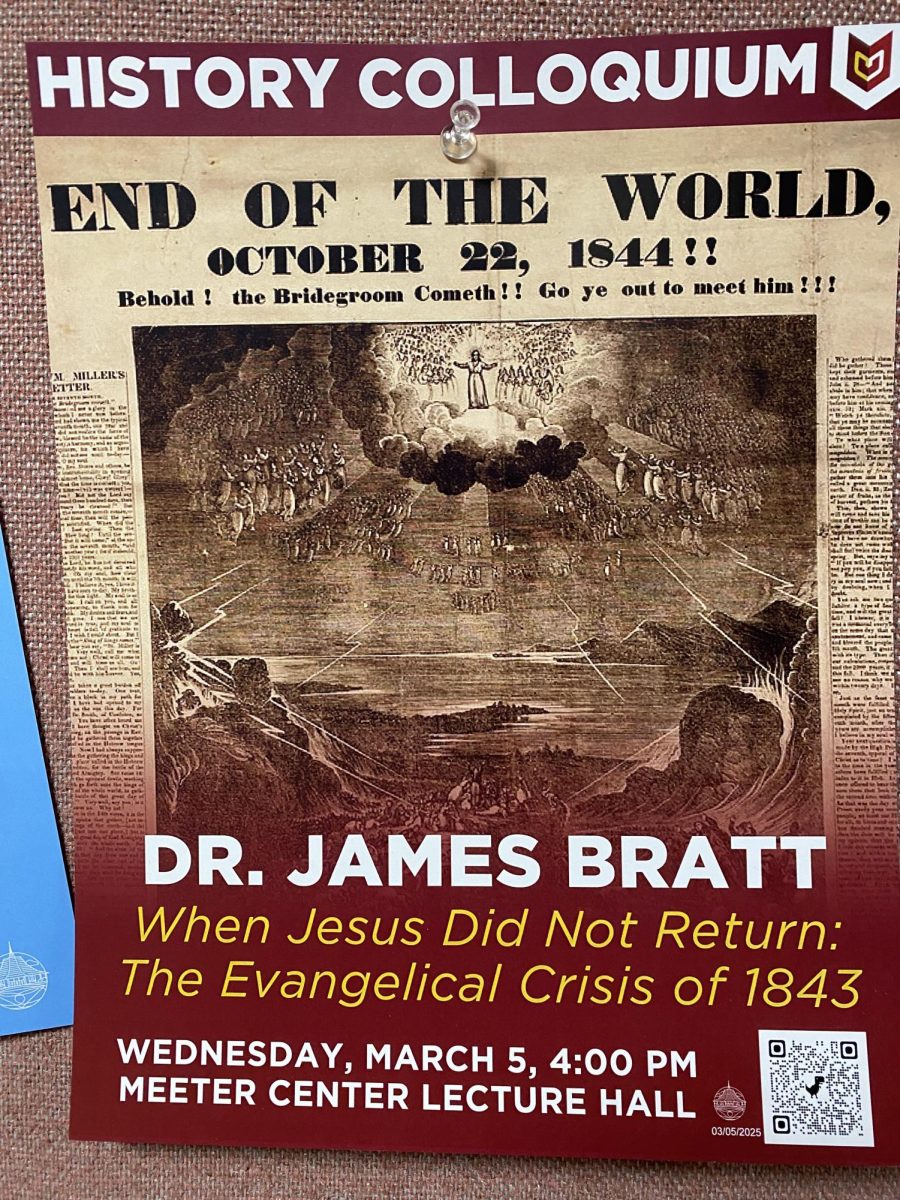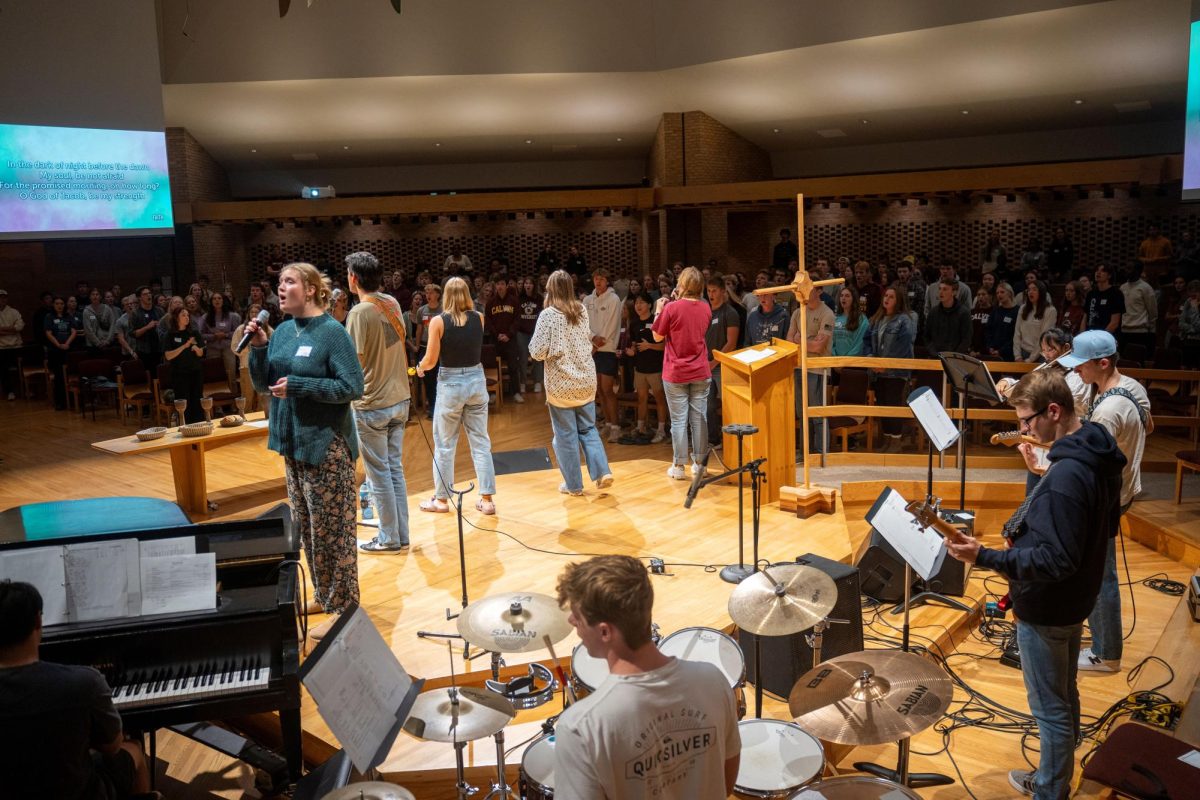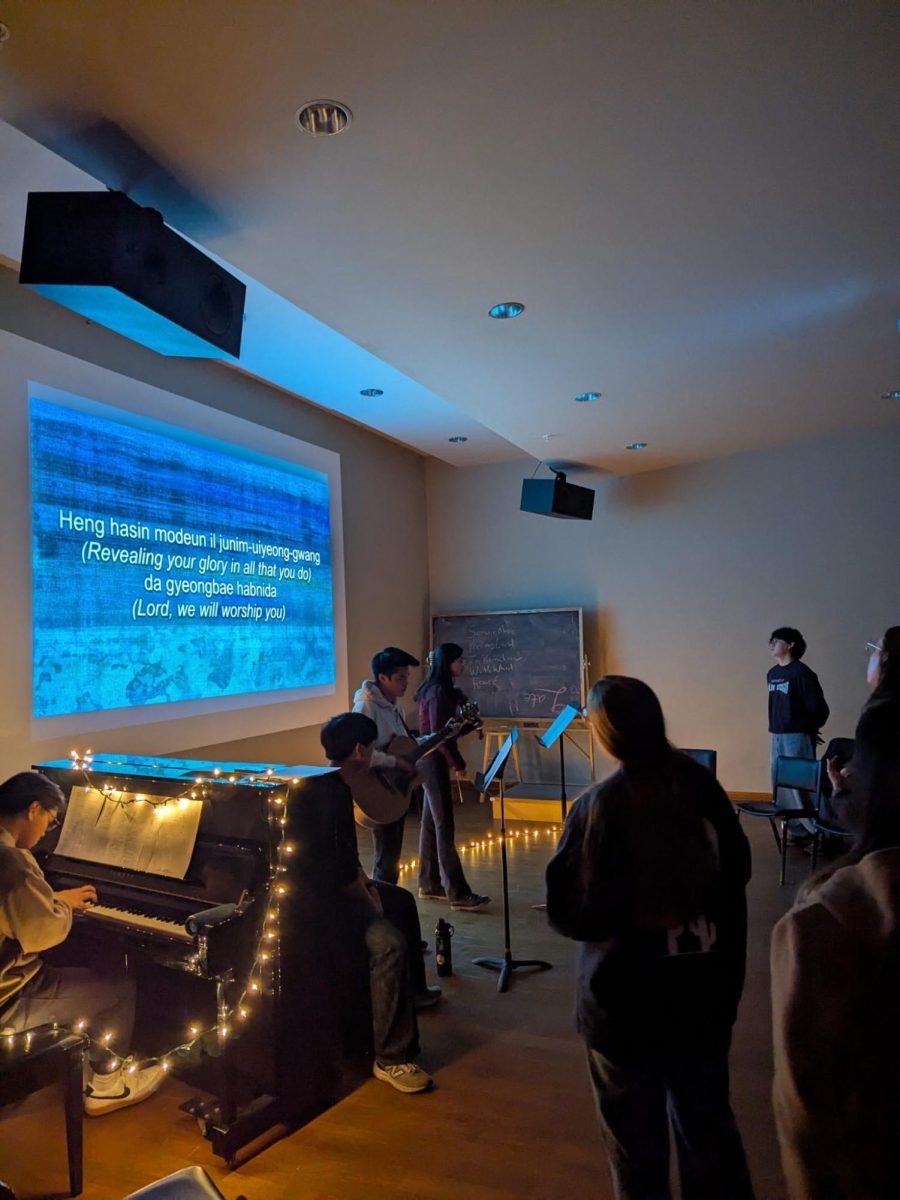While thousands of on-campus students were reading Tolkien, developing Christian minds or bowling, one group of Calvin students, staff and faculty spent their Interim learning in two African countries, where they encountered new ways Christians are working to improve the lives of others.
The group spent three full weeks in different parts of Kenya and Uganda, visiting schools, places of worship, missions organizations, villages, a hospital and the American embassy in Kampala, the capital of Uganda.
Calvin communications professor Mark Fackler leads the trip regularly, and he was accompanied this year by Bob Crow, dean of student development; Ben Arndt, director of admissions counseling, and Mary Hulst, college chaplain.
Among the places that the Calvin group visited were an Anglican cathedral in Kampala and a small rural church in a Maasai village.
“The music [at the Maasai church] was a synthesizer hooked up to a car battery,” said Hulst. “In the cathedral I think I knew every song except one, so you’re reminded that God does hold the whole world in his hands and you have brothers and sisters who are singing words of faith and redemption and grace all over the world. I think that was really moving for students.”
Although Kenya is relatively stable, political corruption has plagued Uganda for much of its postcolonial existence, Hulst explained, with dictators like Idi Amin and militant groups like the Lord’s Resistance Army filling its history with violence and instability.
Hulst said that this tense history means that “there’s not a lot of confidence in government, and people there don’t have a lot of models about how to live with integrity.”
While in Africa, the Calvin group worked with missions agencies like World Renew and the International Justice Mission (IJM). According to Hulst, these agencies are helping to “raise up people who know how to live with integrity, and they’re fighting for the rights of victims.”
In their work in African villages, these organizations target specific problems that lead to poverty and violence. In the Maasai village the Calvin group visited, IJM focuses on land grabbing—clans reclaiming land from widows whose husbands have died, even if they have lived on the land for years and have dependent children.
Hulst particularly admires IJM’s practice of beginning each each day with an hour of personal devotions and communal worship:
“They say, ‘Our work is so impossible that if we don’t remember every day that the Lord is on our side and the Lord cares about widows and orphans, we would be overwhelmed and discouraged, and we would quit.’” Hulst noted that, here in Michigan, we tend to think that our work is “too possible” and might need to adopt the same kind of Christ-fueled work as IJM.
Many students were surprised by the parts of the trip that grabbed their attention, Hulst said.
“For some, it was seeing the hospital we visited with crowded wards but medical staff that were passionate about what they were doing.” Other students were inspired to possible career paths by the visits to the schools and the American embassy, Hulst said.
But just like any off-campus Interim at Calvin, there was time for recreation, too. Particularly popular among students, Hulst said, was whitewater rafting on the Nile River. The group also saw wildlife in the northern Serengeti and filled the nights with rousing games of euchre.
Hulst said that one of her favorite moments from the trip was being shown around a village market by a 16-year-old girl named Joy, who lives at a home with 51 other young women rescued from dangerous and violent situations. Joy was thrilled to learn about American culture from Hulst and share some of her own ways of life:
“At every food we passed, she said, ‘Do you have this in the United States, and how do you cook it?’”
For Hulst, Joy is an example of God’s work and grace in places like Uganda:
“You could just see that this is a person who’s intelligent and capable and driven, and you just wanted to cheer her on.”






